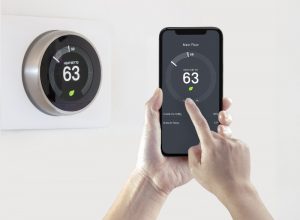As the winter season draws nearer, homeowners often rekindle their heating units to ensure their residences remain warm and their families stay healthy and comfortable. That said, heat can be an expensive utility leaving billpayers wondering how they can reduce the sometimes prohibitive associated costs.
Five Ways To Reduce Heating Expenses
Fortunately, individuals might lessen the vital utility’s punch in the proverbial purse through efforts like:
Insulating
One major heat-related, money-saving method is ensuring the residence in question is adequately insulated. Proper insulation provides added protection against harsh winter elements like frigid temperatures, frozen precipitation, and whipping winds.
Should these weather phenomena penetrate aging windows, foundational cracks, and other appreciable crevices or openings, a home will take in increased concentrations of cool air, which forces said property’s heating unit to work longer and harder to maintain safe and comfortable indoor temperatures.
Keeping The Thermostat Down
Efficiency professionals strongly recommend homeowners keep thermostats turned down during warmer times or occasions when residents will be away. Said experts maintain that keeping temperature-monitoring devices at higher temperatures allows heating systems to operate far more often than needed. The result could be exorbitant bills.
During the daytime hours or when a home is unoccupied, a setting of 68 degrees is more than sufficient. However, when residents are present or during evening hours, settings could be safely and efficiently reduced to 60 degrees.
Exploring Possible Budget Billing Options
Some utility companies offer customers the opportunity to enroll in budget billing. This involves the establishment in question estimating the customer’s overall utility costs over time and permitting them to pay what those estimated expenses average out to. This benefit will not reduce energy usage per se. However, paying one consistent charge saves homeowners from getting socked with large bills when usage is high.
Investing In A Humidifier
Energy-efficiency experts recommend investing in humidifiers. During the winter months, the air often becomes drier. Unfortunately, drier air tends to be cooler.
Humidifiers add significant moisture quantities to indoor air. As this moisture permeates the surrounding air, it feels warmer. Warmer air typically equates to elevated interior temperatures and less reliance on heating units. Systems remaining idle for longer periods burn less fuel or electricity resulting in lower utility costs.
Servicing Heating System
Arguably, the biggest money-saving technique a homeowner can perform is to schedule routine heating system servicing and furnace repair. One should never wait until a problem arises. Older but functioning systems often run less efficiently and simple tune-ups or upgrades might render the unit in question more energy-efficient over time.
ATR041124…
